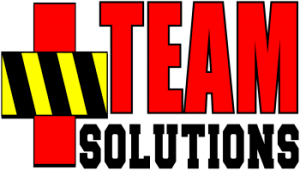In mid-February 2021 a winter storm blanketed - in every way possible - the State of Texas.
What made this storm unique among winter storms was the size and the scope of the winter storm's impact.
Cities across the state from the Gulf of Mexico, like Galveston Island, to North Texas saw snow and sub-freezing temperatures.
Coal, gas, nuclear, wind, solar ... all failed to meet the energy demands put on the statewide grid.
In North Texas, where I live, we spent over 140 hours below freezing, most of those without the electrical energy needed for heating, cooking or illuminating.
Conditions like this occurring so widely and concurrently are mostly unexpected in Texas. And when things don't go as planned, stress tends to bubble over into a few expected, highly-energized behaviors, including.
- Blaming
- Hoarding
- Criticizing
And not surprisingly, not one of these behaviors restores the availability of electrical generation nor creates any useful operational resilience.
***
Emotions and emotional decision-making can be normal human reactions to stressors such as described above.
- We may fear the unknown
- We may feel empathy for those in need
- We may have envy for those with more than us
- We may experience embarrassment for a lack of preparedness
Unfortunately, the energy invested in those emotions doesn't restore the availability of electrical generation, either.
So, clearly, emotional reactions - whether hateful or human and regardless how much energy we put into them - do little to produce or maintain real operational resilience.
Power > Energy
Semantics aside, accessing our personal power produces different results than being simply energetic.
- The power resulting from a mindset of resilience instead of expecting others to take care of us
- The power resulting from acknowledging people's efforts instead of criticizing their deficiencies
- The power resulting from using what's needed instead of depriving others of an opportunity to do the same
Real power in a disruption comes from within us.
Our choices, or attitudes, and our treatment of others.
By embracing our inherent personal power, the impact of the disruption loses its significance, regardless of the type of disruption.
- Power from a resilient mindset is beneficial during winter storms, traumatic loss or financial hardship.
- Power from humility and a healthy self-esteem is beneficial to suppress the urge to criticism destructively.
- Power from an attitude of empathy and selflessness is beneficial when others are suffering and need support and understanding.
Harnessing and embracing this personal power can also enable leaders to model a positive influence on those around them in need direction.
Ready to be a more resilient leader?
In the next crisis, disruption or kerfuffle, focus less on activities which waste energy and focus more on the useful benefits of personal power.
Be sure to sign up below to receive content like this regularly.
